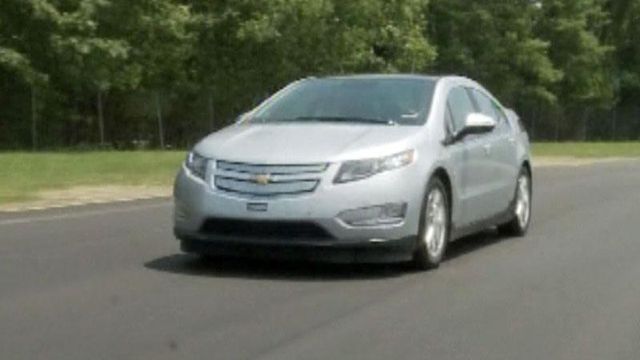Electric cars are safe, but are they the car of the future?
Electric vehicles have come a long way, but for most consumers, they still don't make sense as a primary mode of transportation.
Posted — UpdatedIt still seems a little odd to many of us to have a car that you just plug in. Yet plenty of people, such as Eddie Luvic, are sold on the idea. "I saw the Chevy Volt on the floor. I looked it over, and I had to buy it," says Luvic.
The Insurance Institute for Highway Safety recently ranked the Nissan Leaf and the Chevrolet Volt among its top safety picks for front, side, rear and rollover crash protection.
But on other fronts, the vehicles both still have a ways to go, according to Consumer Reports.
The group’s auto testing engineers thoroughly checked out the Volt – which has a backup gasoline engine – and the Leaf, which is 100 percent electric. Range – or how far an electric vehicle can go on a charge – is a big issue. Consumer Reports Jake Fish says testers found that cold weather is a problem for the cars. "The Nissan Leaf can go about 100 miles on a charge, but that's in ideal conditions" says Jake. "In our experience, cold weather can shorten that to about 65 miles."
Testers also say in low temperatures, the Volt has trouble fully heating. It can go anywhere from 25 to 50 miles before the gasoline engine kicks in, which can take the car up to 300 miles. But Fisher says that comes at a cost, "The added gasoline engine makes the Volt expensive, and on long drives you may wind up actually using more fuel than you would in a conventional hybrid like the Prius."
As for recharge time, with a 220-volt charger that you can install in your home, the Volt takes about four to five hours. The Leaf takes about eight hours on average. The Leaf costs about $35,000. The Volt is even more, about $45,000. And even with federal and state tax credits, Consumer Reports says neither is likely to save you money.
"Electric vehicles have come a long way," says Fisher. "But they still have a long way to go before they're ready to replace the average person's primary vehicle." But if you're willing to pay a premium for going gas-free, one of the vehicles might be right for you.
Copyright 2024 by Capitol Broadcasting Company. All rights reserved. This material may not be published, broadcast, rewritten or redistributed.





